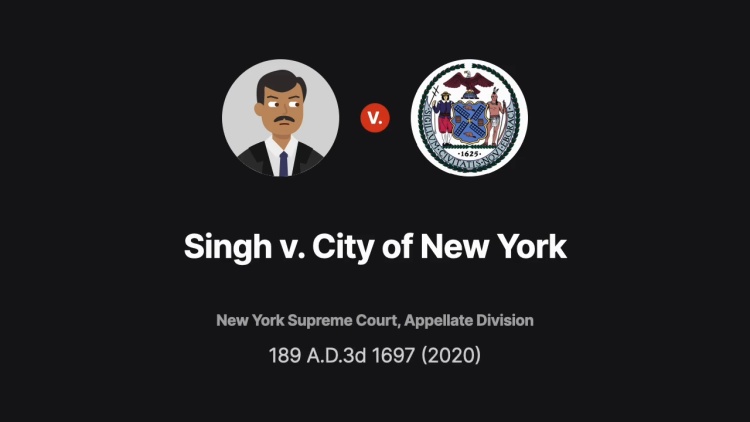Singh v. City of New York
New York Supreme Court, Appellate Division
139 N.Y.S.3d 307, 189 A.D.3d 1697 (2020)

- Written by Kate Luck, JD
Facts
A class of purchasers of New York taxicab medallions (the purchasers) (plaintiffs) filed a class-action lawsuit against the City of New York and the New York City Taxi and Limousine Commission (collectively, the city) (defendants), alleging that the city breached the implied covenant of good faith and fair dealing, among other claims. The purchasers bought taxicab medallions from the city at auction using official bid forms. Shortly thereafter, the value of those medallions was drastically reduced because the city began allowing Uber Technologies, Inc. (Uber) to operate in the city, increasing competition among taxicabs. The official bid forms used to purchase the medallions stated that the city made no representation as to the present or future value of the medallions, the operation of taxicabs as permitted by the medallions, or the present or future application of law and regulations pertaining to taxicabs. The purchasers alleged that the city breached the implied covenant of good faith and fair dealing by failing to disclose its knowledge of the declining value of the medallions at the time the purchasers bought the medallions. The city moved to dismiss the purchasers’ claims, arguing in part that the purchasers failed to state a claim for breach of the implied covenant of good faith and fair dealing. The trial court denied the city’s motion to dismiss with regard to the claim for breach of the implied covenant of good faith and fair dealing and granted the motion with regard to other claims. The purchasers appealed, and the city cross-appealed with regard to the denial of its motion to dismiss the claim for breach of the implied covenant of good faith and fair dealing.
Rule of Law
Issue
Holding and Reasoning (Per curiam)
What to do next…
Here's why 911,000 law students have relied on our case briefs:
- Written by law professors and practitioners, not other law students. 47,100 briefs, keyed to 997 casebooks. Top-notch customer support.
- The right amount of information, includes the facts, issues, rule of law, holding and reasoning, and any concurrences and dissents.
- Access in your classes, works on your mobile and tablet. Massive library of related video lessons and high quality multiple-choice questions.
- Easy to use, uniform format for every case brief. Written in plain English, not in legalese. Our briefs summarize and simplify; they don’t just repeat the court’s language.





